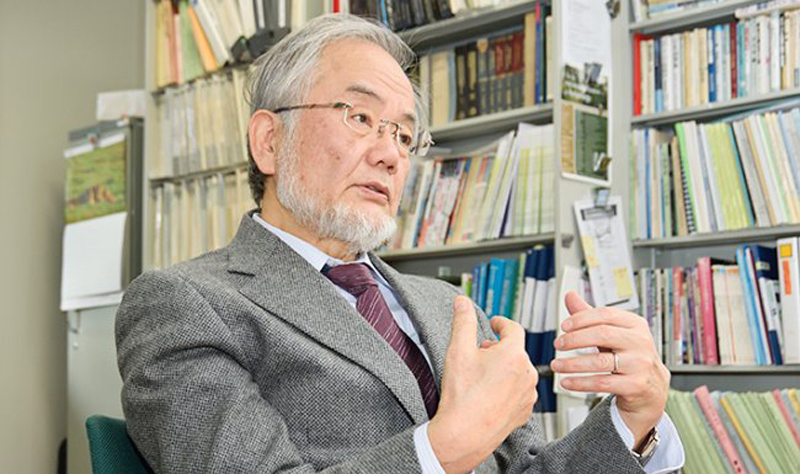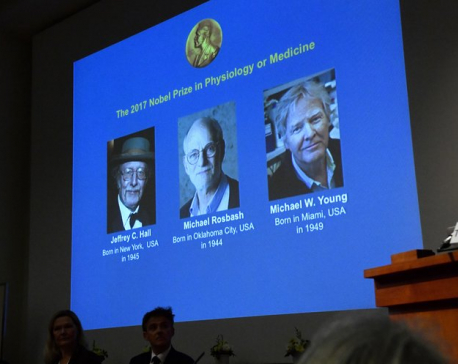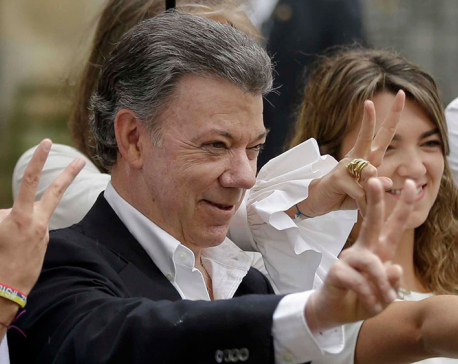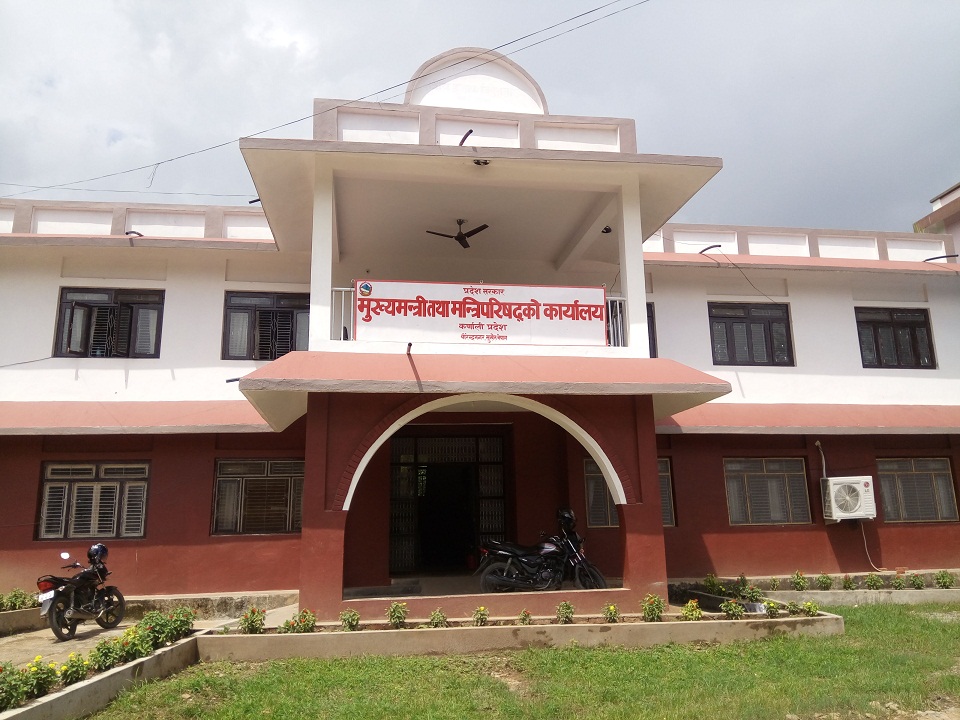
OR
Japan's Ohsumi wins Nobel medicine prize
Published On: October 3, 2016 03:29 PM NPT By: Associated Press

STOCKHOLM, Oct 3: Japanese scientist Yoshinori Ohsumi was awarded this year's Nobel Prize in medicine on Monday for discoveries related to the degrading and recycling of cellular components.
The Karolinska Institute honored Ohsumi for "brilliant experiments" in the 1990s on autophagy, the machinery with which cells recycle their content.
Disrupted autophagy has been linked to various diseases including Parkinson's, diabetes and cancer, the institute said.
Though the concept has been known for more than 50 years, its "fundamental importance in physiology and medicine was only recognized after Yoshinori Ohsumi's paradigm-shifting research in the 1990s," Karolinska said in its citation.
Ohsumi was born in 1945 in Fukuoka, Japan. He is currently a professor at the Tokyo Institute of Technology.
It was the 107th award in the medicine category since the first Nobel Prizes were handed out in 1905.
Last year's prize was shared by three scientists who developed treatments for malaria and other tropical diseases.
The announcements continue with physics on Tuesday, chemistry on Wednesday and the Nobel Peace Prize on Friday. The economics and literature awards will be announced next week.
Each prize is worth 8 million kronor ($930,000).
You May Like This

3 Americans win Nobel medicine prize for body rhythm work
STOCKHOLM, Oct 2: The Nobel Prize in Physiology or Medicine was awarded to three Americans on Monday for discoveries about... Read More...

Bob Dylan wins Nobel Literature Prize
American music legend Bob Dylan on Thursday won the Nobel Literature Prize, the first songwriter to win the prestigious award... Read More...

Colombian leader Juan Manuel Santos wins Nobel Peace Prize
OSLO, Norway, Oct 7: Colombian President Juan Manuel Santos won the Nobel Peace Prize on Friday for his efforts to end... Read More...


Just In
- MoEST seeks EC’s help in identifying teachers linked to political parties
- 70 community and national forests affected by fire in Parbat till Wednesday
- NEPSE loses 3.24 points, while daily turnover inclines to Rs 2.36 billion
- Pak Embassy awards scholarships to 180 Nepali students
- President Paudel approves mobilization of army personnel for by-elections security
- Bhajang and Ilam by-elections: 69 polling stations classified as ‘highly sensitive’
- Karnali CM Kandel secures vote of confidence
- National Youth Scientists Conference to be organized in Surkhet

















Leave A Comment